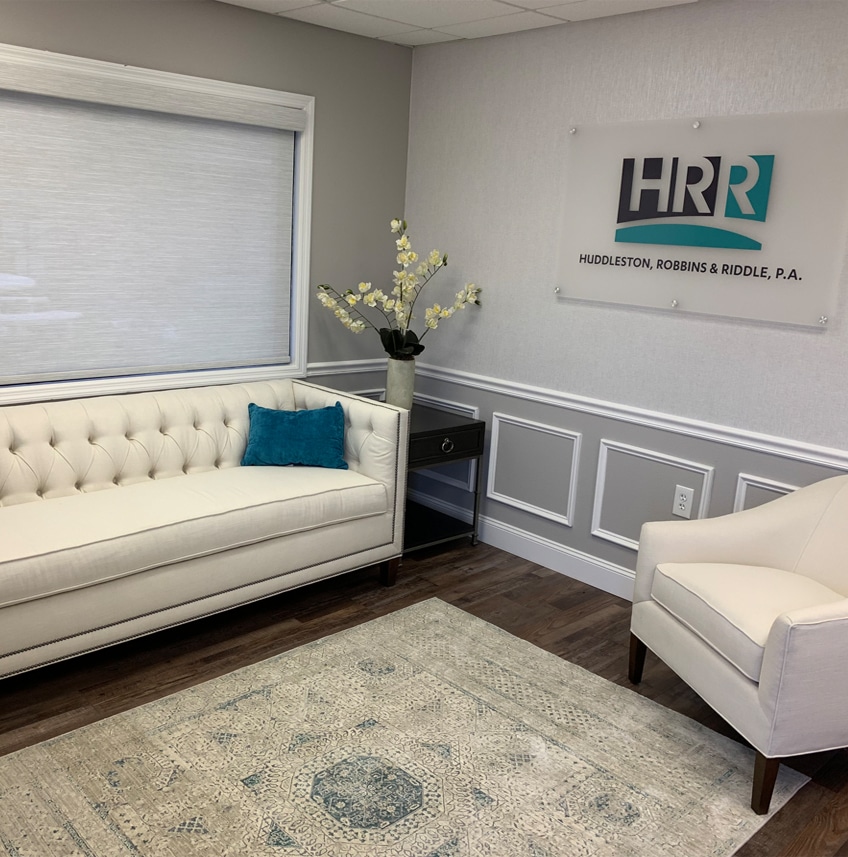Guardianship

If a loved one in your life has either lost or does not possess the capacity to make informed, rational decisions regarding their finances or medical care, they may require a guardian. A guardianship is the solution, whether your loved one has declined from age, they are a mentally disabled adult, or they have been diagnosed with a medical condition that requires constant care.
Taking over the care of a loved one can be stressful and confusing. You want to know that you are doing the right thing—legally, emotionally, and morally. Going through the guardianship process with the help of an attorney goes far toward alleviating worry during this complex process.
Florida recognizes two kinds of legal guardianship, voluntary and involuntary. In a voluntary guardianship, the person for whom a guardian is appointed (i.e., “the ward”) is a competent adult that requests the guardianship appointment. In an involuntary guardianship proceeding, an interested person files a petition with a Florida circuit court to appoint a guardian for an incapacitated person.
Florida law requires the use of the least restrictive alternative to protect individuals that are incapable of caring for themselves and managing their financial affairs whenever possible. Guardian Advocacy is a process for family members, caregivers, or friends of individuals with a developmental disability to obtain the legal authority to act on their behalf. Unlike a full guardianship, the court does not have to declare the person incapacitated, instead, the focus is on the “decision-making” ability of the individual.
What Is A Guardianship?
A guardianship is a legal proceeding in the circuit courts of Florida in which a guardian is appointed to exercise the legal rights of an incapacitated person. This process is governed by Chapter 744, Florida Statutes.
What Is A Guardian?
A guardian is an individual or institution (such as a nonprofit corporation or bank trust department) appointed by the court to care for and make decisions in the best interest an incapacitated person and/or their assets.
Who Is Incapacitated?
An incapacitated person is an adult who has been judicially determined to lack the capacity to manage their property and/or their essential health and safety requirements.
What Happens in an Involuntary Guardianship?
Before the court will declare a person incapacitated, a hearing before the judge and subsequent court order must take place. Before the hearing occurs, an interested person needs to file a Petition to Determine Incapacity. An interested person can be a caregiver, relative, neighbor or an attorney.
In the petition, the interested person must set forth the reasons why they believe the person in question needs to be determined incapacitated. After the interested person files the petition, the court will appoint the allegedly incapacitated person an attorney who is experienced in legal guardianship matters. The court will also assign a physician and two other health care professionals who will make up the examining committee.
How Is A Person Determined to Be Incapacitated?
Any adult may file a petition with the court to determine another person’s incapacity, setting forth the factual information upon which they base their belief that the person is incapacitated.
The court then appoints a committee of three members, usually two physicians and another person who by knowledge, skill, training, or education can form an expert opinion. One of the three members of the committee must have knowledge of the type of incapacity alleged in the petition, and each member of the committee must submit a report of findings to the court. The examination of the incapacitated person normally includes: a physical examination, a mental health examination and a functional assessment.
The examining committee assigned by the court will conduct an investigation into the allegedly incapacitated person. Within 45 days, the committee will report to the judge whether or not they find the allegedly incapacitated person totally incapacitated, partially incapacitated or fully capable. If the majority of the examining committee members conclude that the alleged incapacitated person is not incapacitated in any respect, the judge is required to dismiss the petition. If the examining committee finds the person is unable to exercise certain rights, the court will schedule a hearing at which witnesses, medical officials and any other interested parties will provide evidence as to whether or not the person is incapacitated to determine whether the person is totally or partially incapacitated. If a person is found to be incapacitated in any respect, a guardian is appointed at the end of the incapacity hearing unless there are less restrictive alternatives to guardianship that adequately address the person’s incapacity.
Who May Serve as Guardian?
Any adult resident of Florida, related or unrelated to the potential ward, can serve as a guardian. Certain relatives of the ward who do not live in Florida also may serve as guardian. However, individuals who have been convicted of a felony or who are incapable of carrying out the duties of a guardian cannot be appointed.
Individuals who are professional or public guardians can serve as guardian. Additionally, an institution such as a nonprofit corporation can be appointed guardian, however a bank trust department may act as guardian only of the ward’s property.
What Does A Guardian Do?
A guardian of the ward’s person may exercise those rights that have been removed from the ward and delegated to the guardian, such as providing medical, mental and personal care services and determining the place and kind of residential setting best suited for the ward. The guardian of the person must also present to the court every year a detailed plan for the ward’s care along with a physician’s report.
A guardian who is given authority over property of the ward is required to inventory the property, invest it prudently, use it for the ward’s support and account for it by filing detailed annual reports with the court. Additionally, the guardian must obtain court approval for certain financial transactions.
If the court finds the ward partially incapacitated, it will appoint a limited guardian to perform only those rights that the ward is incapable of exercising.
Is A Guardian Accountable?
Yes. A guardian must be represented by an attorney who will serve as “attorney of record.” Guardians are usually required to furnish a bond (financial institutions and public guardians are not required to file a bond) and may be required to complete a court-approved training program.
The clerk of the court reviews all annual reports of guardians of the person and property and presents them to the court for approval. Guardians who do not properly carry out their responsibilities may be removed by the court.
Is Guardianship Permanent?
A guardianship does not have to be permanent. If a ward recovers in whole or part from the condition that caused that person to be incapacitated, a petition can be filed with the court to restore the ward’s rights. In such a case, the court will have the ward re-examined and can restore some or all of the ward’s rights.
A guardian may be held accountable and removed as guardian if the guardian fails to carry out the expected duties or otherwise becomes ineligible to act as guardian. A guardian also may resign by providing notice to the court.
Is Guardianship the Only Means of Helping an Incapacitated Person?
No. Florida law requires the use of the least restrictive alternative to protect people incapable of caring for themselves and managing their financial affairs whenever possible. If a person creates an advance health care directive, a durable power of attorney or trust while competent, he or she may not require a guardian in the event of incapacity.
Guardian Advocacy

What is a Guardian Advocate and how does it differ from a Guardianship?
When a child turns 18, their parents no longer have the legal authority to make decisions on their behalf. Guardian Advocacy is a process under §393.12 of the Florida Statutes for family members, caregivers, or friends of individuals with a developmental disability to obtain the legal authority to act on their behalf.
A guardian advocate may be appointed by the court if an adult person has a developmental disability and lacks the capacity to do some of the tasks necessary to care for himself or herself, or his or her property or estate. This is the least restrictive, and less costly, type of guardianship for people with developmental disabilities. Unlike a full guardianship, the court does not have to declare the person incapacitated. Instead, the focus is on the “decision-making” ability of the individual.
Who is developmentally disabled?
Under §393.063(12), Florida Statutes, a person is considered to have a “developmental disability” if he or she has (1) been diagnosed with mental retardation, cerebral palsy, autism, spina bifida, Prader-Willi, Down or Phelan-McDermid syndromes, (2) that manifested before the age of 18, and (3) constitutes a substantial handicap that can be expected to continue indefinitely.
Are there different types of Guardian Advocacy?
Yes. You can apply to be Guardian Advocate of the Person, the Property or both. A Guardian Advocate of the Person can seek to make personal decisions, including determining residence, consenting to medical or mental health treatment, and making social decisions. A Guardian Advocate of Property can ask the court to make property decisions, like contracting, suing and defending lawsuits, and managing property or making gifts.
Are the powers of a Guardian Advocate different than the powers of a full guardian?
No. A Guardian Advocate has the same powers and duties as a guardian under chapter 744, Florida Statutes, limited only by the court’s order that sets out the types of decisions delegated.
Once I am appointed Guardian Advocate, what are my responsibilities?
Even if you are the parent of the person with developmental disabilities, as a Guardian Advocate you are taking on fiduciary duties and must answer to the oversight of the court. Your rights as a Guardian Advocate are limited by the Order and by the type of Guardian Advocacy. If you need greater rights, you will need to seek further approval from the court.
Additionally, there are certain decisions that cannot be made without prior court approval, such as moving the residence of the ward outside of the county.
Within 4 months of appointment, you may need to complete a court-approved guardianship education course. Occasionally, the court will waive this requirement.
A Guardian Advocate must file an Initial Report within 60 days of appointment setting out the mental health, medical, social, and personal care service needs of the person with developmental disabilities and how those will be met. A similar report needs to be filed with the Court annually (within 90 days from the anniversary date of appointment.)
A Guardian Advocate of the Property may have additional duties. For instance, a more thorough accounting of property is required annually unless the only property is public benefits.
Do I need an attorney to become a Guardian Advocate?
Not necessarily. Florida law no longer requires that you have an attorney unless you are delegated property rights in addition to the right to be representative payee of government benefits. Many of the forms can be found online.
Before ordering a Guardian Advocacy, the Court is required to appoint an attorney for the person with a developmental disability to protect his or her interest.
Are there benefits to having an attorney?
Not only can an attorney help you with the required forms, but he or she will guide you through the court system and make sure you understand your responsibilities as a Guardian Advocate. Even before you file, an attorney should inform you of alternatives to Guardian Advocacy and determine if a less restrictive alternative is available. The court is required to make that same determination, which could result in denial of your petition.
What should I do if I have a guardianship from another state?
If the ward moves to Florida, the out-of-state guardian should notify the Florida court in the county of the ward’s residence. Under §744.306, the guardian has 60 days from the change of residence to file an authenticated copy of the guardianship order. If this is done, the court must give “full faith and credit” to the order. You may need a Florida attorney to assist, or to provide oversight of the guardianship and its annual reporting requirements.
© 2024 . Huddleston, Robbins & Riddle, P.A . All Rights Reserved
Website by OlympusWeb.com



